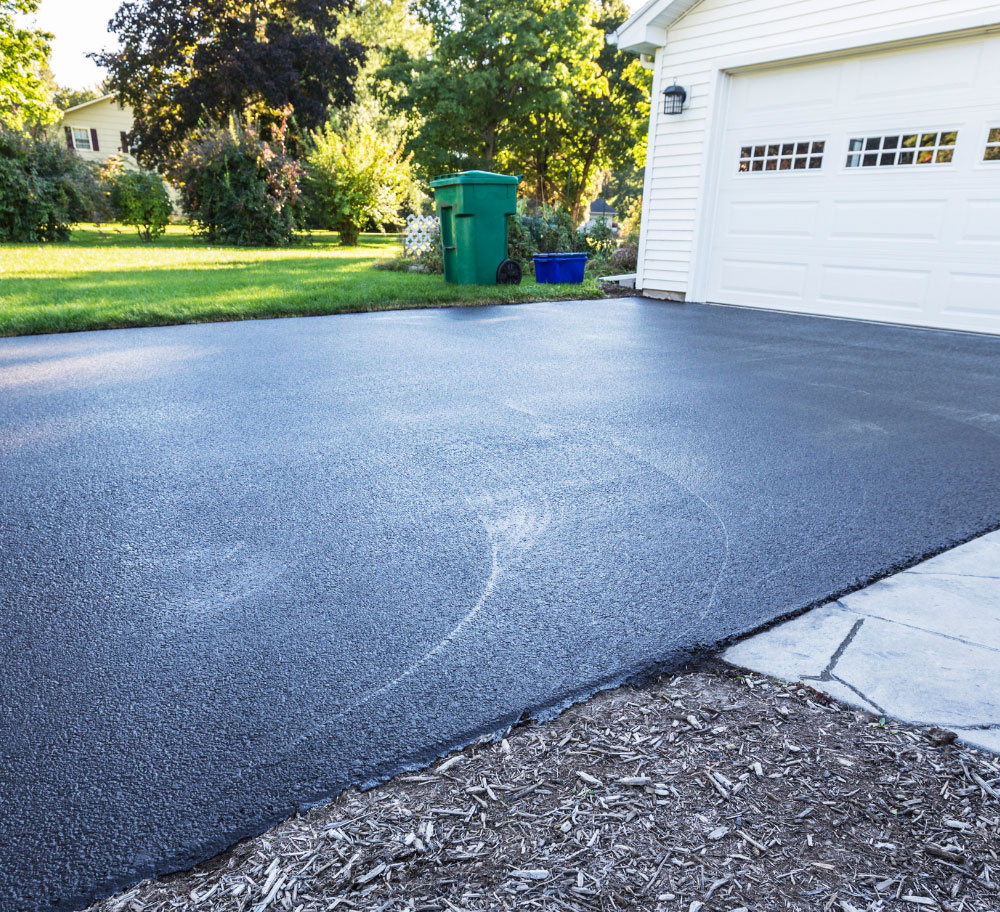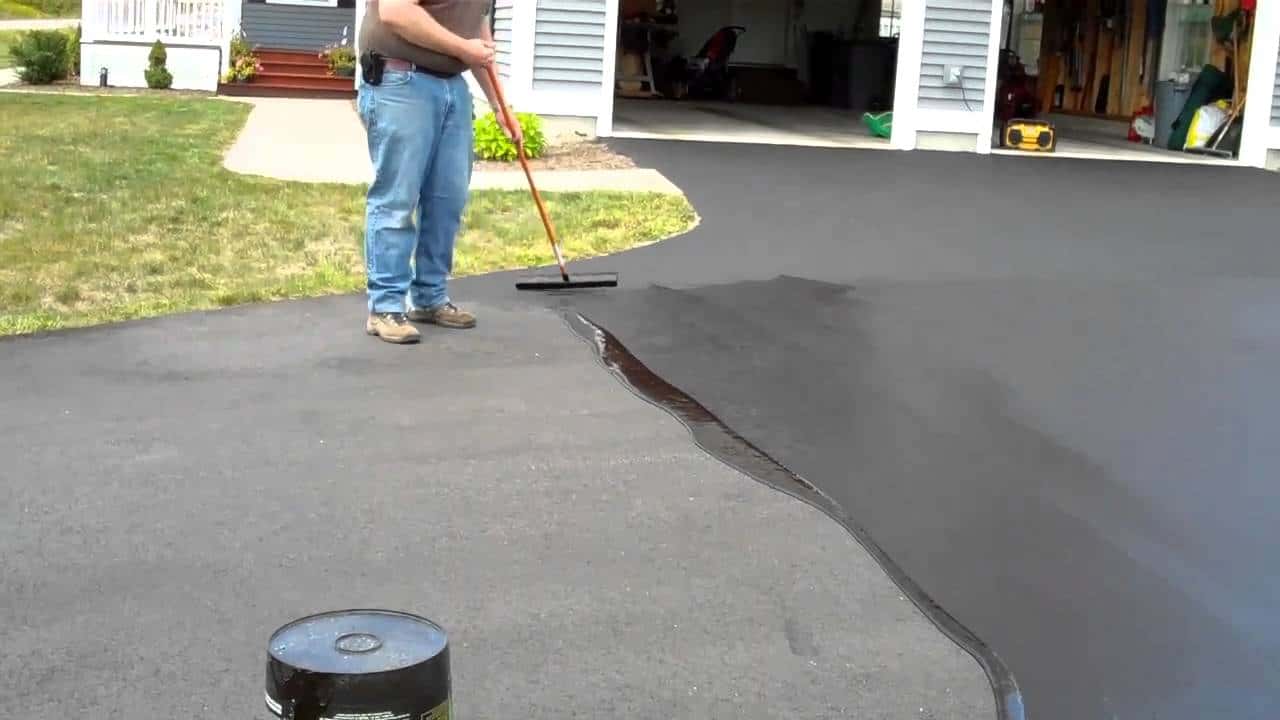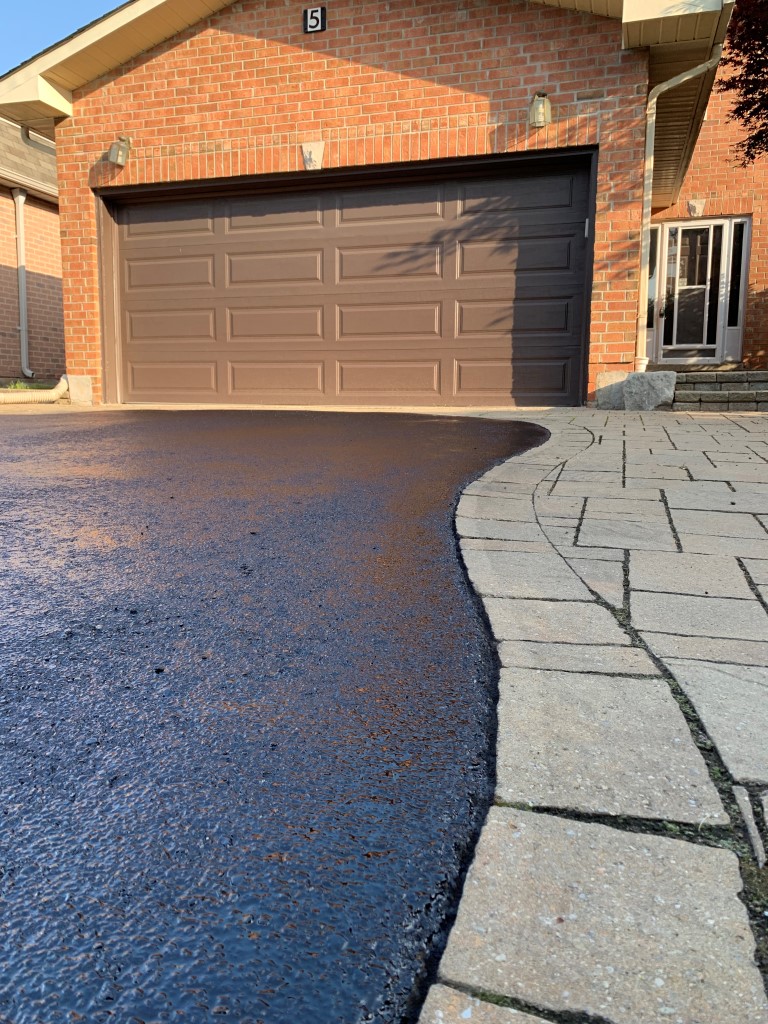Let’s face it, driveways are like the unsung heroes of your property. They take a beating from weather, traffic, and time, yet they rarely get the TLC they deserve. If you’re wondering how much it costs to seal coat a driveway, you’re not alone. Many homeowners are curious about this process and how it can protect their investment. In this guide, we’ll break it all down for you—costs, benefits, and everything in between.
Seal coating isn’t just about aesthetics; it’s about preserving the integrity of your driveway. A well-sealed driveway can last years longer, saving you money in the long run. Whether you’re a DIY enthusiast or looking to hire a professional, understanding the factors that influence the cost is crucial.
So, grab your favorite drink, and let’s dive into the nitty-gritty of seal coating driveways. We’ll cover everything from the average cost to the steps involved, so you’re fully equipped to make an informed decision.
Table of Contents
- Cost Overview: Breaking Down the Numbers
- Why Seal Coating Matters
- Factors Affecting the Cost
- Average Cost of Seal Coating
- DIY vs Professional: Which is Better?
- Preparation Tips for a Successful Seal Coat
- Long-Term Benefits of Seal Coating
- Common Mistakes to Avoid
- Types of Seal Coating Materials
- Frequently Asked Questions
Cost Overview: Breaking Down the Numbers
Alright, let’s talk numbers. The cost to seal coat a driveway can vary depending on several factors, but on average, you’re looking at anywhere from $0.15 to $0.40 per square foot. For a standard 1,000-square-foot driveway, that translates to about $150 to $400. But hold up, there’s more to consider than just the size of your driveway.
Factors like the type of material used, the condition of your driveway, and the professional you hire (if any) can all impact the final price. And don’t forget, location matters too. Some areas may have higher labor costs, which will affect the overall cost.
Cost Breakdown by Region
Let’s get a little more specific. In regions like the Midwest, you might find cheaper rates due to lower labor costs. On the other hand, areas like the Northeast or West Coast might have higher prices because of the demand and cost of living. It’s always a good idea to get a few quotes from local contractors to get a better idea of what you’ll be paying.
Why Seal Coating Matters
Now, you might be thinking, “Why bother with seal coating?” Well, here’s the deal: seal coating is like sunscreen for your driveway. It protects against UV rays, oil spills, and water damage—all the things that can prematurely age and deteriorate your driveway.
Think about it. Your driveway is exposed to the elements 24/7. Without a protective layer, it’s vulnerable to cracks, potholes, and other damage. Seal coating creates a barrier that shields your driveway from these threats, extending its lifespan significantly.
Protecting Your Investment
Your driveway is a significant part of your property’s curb appeal. A well-maintained driveway not only looks better but also adds value to your home. By investing in regular seal coating, you’re safeguarding one of your biggest assets.
Factors Affecting the Cost
So, what exactly influences the cost of seal coating a driveway? Let’s break it down into manageable chunks:
- Driveway Size: Larger driveways will obviously cost more to seal coat. The square footage is a major factor in determining the final price.
- Driveway Condition: If your driveway has existing cracks or damage, you might need additional repairs before seal coating, which can increase the cost.
- Type of Material: Different seal coating materials come with different price tags. Coal tar and asphalt emulsion are two common options, each with its pros and cons.
- Professional vs DIY: Hiring a professional will cost more upfront, but they bring expertise and efficiency to the table. If you’re handy, DIY might save you money, but it requires time and effort.
Hidden Costs to Watch Out For
While the cost per square foot might seem straightforward, there are some hidden costs to be aware of. Things like pressure washing, crack repair, and stripping old sealant can add to the total bill. Make sure to factor these in when budgeting for your project.
Average Cost of Seal Coating
Now that we’ve covered the factors, let’s talk averages. Most homeowners spend between $200 and $500 to seal coat their driveways. This includes both labor and materials. Of course, this can vary based on the size and condition of your driveway.
For smaller driveways, you might pay closer to $150, while larger driveways could cost upwards of $600. Again, these are rough estimates, so it’s always best to get a detailed quote from a professional.
Cost Comparison: DIY vs Professional
Let’s compare the costs of doing it yourself versus hiring a professional. On the DIY side, you’re looking at about $0.15 to $0.25 per square foot for materials. This doesn’t include the cost of tools or the time it takes to complete the job.
Hiring a professional, on the other hand, might cost closer to $0.30 to $0.40 per square foot. But remember, professionals bring expertise, quality materials, and often a warranty, which can be worth the extra cost.
DIY vs Professional: Which is Better?
This is the million-dollar question, isn’t it? Whether you choose to tackle the job yourself or hire a professional depends on your skills, time, and budget. Let’s weigh the pros and cons of each option.
Pros and Cons of DIY Seal Coating
Doing it yourself can save you money, but it requires a good amount of time and effort. You’ll need to rent or buy equipment, gather materials, and follow a detailed process. If you’re not careful, you could end up with an uneven seal coat or worse, damage your driveway.
- Pros: Cost-effective, you control the schedule, and you gain a sense of accomplishment.
- Cons: Time-consuming, requires skill, and potential for mistakes.
Pros and Cons of Hiring a Professional
Hiring a professional ensures a high-quality job with minimal hassle. They have the tools, experience, and expertise to get the job done right the first time. Plus, many offer warranties, which can give you peace of mind.
- Pros: High-quality results, saves time, and often includes a warranty.
- Cons: More expensive upfront and requires research to find a reputable contractor.
Preparation Tips for a Successful Seal Coat
Whether you’re doing it yourself or hiring a professional, proper preparation is key to a successful seal coat. Here are a few tips to keep in mind:
- Clean Your Driveway: Remove any dirt, debris, or oil stains before applying the sealant.
- Repair Cracks: Address any cracks or damage beforehand to ensure a smooth surface.
- Choose the Right Weather: Seal coating should be done in dry weather with temperatures between 50°F and 90°F.
- Use Quality Materials: Don’t skimp on the sealant. A high-quality product will provide better protection and last longer.
Common Preparation Mistakes
Skipping the preparation phase is a common mistake that can lead to poor results. Failing to clean the driveway thoroughly or not repairing cracks can compromise the seal coat’s effectiveness. Take the time to prepare properly, and you’ll be rewarded with a long-lasting seal.
Long-Term Benefits of Seal Coating
Investing in seal coating now can save you money in the long run. A well-sealed driveway is more resistant to damage from weather, oil spills, and UV rays. This means fewer repairs and a longer lifespan for your driveway.
Not only does seal coating protect your driveway, but it also enhances its appearance. A fresh seal coat can make your driveway look like new again, boosting your home’s curb appeal.
Saving Money in the Long Run
Think of seal coating as preventative maintenance. By protecting your driveway now, you’re avoiding costly repairs down the road. Regular seal coating can extend the life of your driveway by 5 to 10 years, making it a worthwhile investment.
Common Mistakes to Avoid
Even with the best intentions, mistakes can happen. Here are a few common ones to watch out for:
- Applying Too Thickly: A thick layer of sealant can crack and peel, so apply it in thin, even coats.
- Not Preparing the Surface: Skipping the cleaning and repair steps can lead to a poor bond between the sealant and the driveway.
- Ignoring Weather Conditions: Applying sealant in wet or extreme weather can affect its performance.
How to Avoid These Mistakes
The key to avoiding these mistakes is preparation and patience. Take the time to clean and repair your driveway before applying the sealant. Follow the manufacturer’s instructions carefully, and choose a day with optimal weather conditions for the job.
Types of Seal Coating Materials
Not all sealants are created equal. There are different types of seal coating materials, each with its own set of benefits and drawbacks. Let’s take a look at the most common options:
- Coal Tar Sealant: Known for its durability and resistance to oil and chemicals, coal tar sealant is a popular choice for many homeowners.
- Asphalt Emulsion Sealant: This eco-friendly option is made from recycled asphalt and provides good protection against UV rays and water damage.
- Polyurethane Sealant: Offers superior durability and resistance to wear and tear, making it ideal for high-traffic areas.
Choosing the Right Material
The right material for your driveway depends on factors like climate, traffic, and personal preference. Do your research and consult with a professional if you’re unsure which option is best for your situation.
Frequently Asked Questions
Still have questions? Here are some of the most common ones we hear:
How Often Should I Seal Coat My Driveway?
On average, it’s recommended to seal coat your driveway every 2 to 3 years. This frequency can vary based on factors like climate and traffic.
Can I Seal Coat My Driveway in the Winter?
Not ideal. Seal coating should be done in temperatures between 50°F and 90°F, so winter is not the best time for this project.
Do I Need to Repair Cracks Before Seal Coating?
Absolutely. Seal coating won’t fix cracks; it will only hide them temporarily. Address any cracks or damage before applying the sealant.
Kesimpulan
So, there you have it—a comprehensive guide to the cost and process of seal coating a driveway. Whether you’re a DIY enthusiast or looking to hire a professional, understanding the factors that influence the cost and the benefits of seal coating can help you make an informed decision.
Remember, your driveway is a significant investment, and regular maintenance is key to keeping it in top condition. By investing in seal coating, you’re protecting your property and enhancing its curb appeal.
Now it’s your turn


